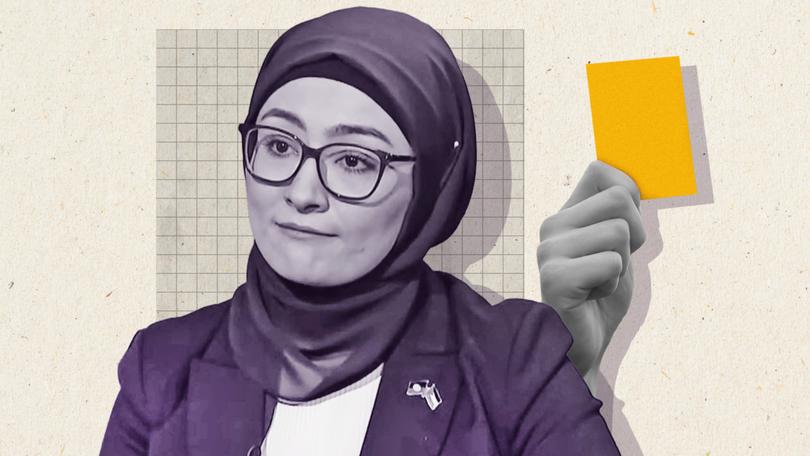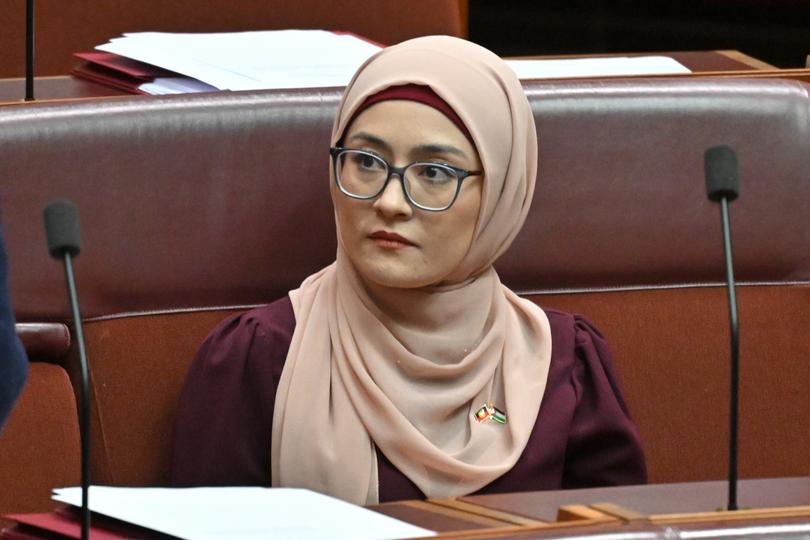KATINA CURTIS: The Fatima Payman saga demonstrates a growing disconnect within the Labor Party
KATINA CURTIS: It was supposed to be such a good week for Labor. But the actions of Fatima Payman have left many of her colleagues feeling betrayed and upset.

It was supposed to be such a good week for Labor.
The tax cuts they have been talking about for five months finally started, people’s next power bills will have a rebate, and the lowest-paid workers get yet another decent pay rise.
“We are in the Labor Party to help people,” Prime Minister Anthony Albanese reminded caucus colleagues as he urged them to keep talking about all this cost-of-living relief.
Sign up to The Nightly's newsletters.
Get the first look at the digital newspaper, curated daily stories and breaking headlines delivered to your inbox.
By continuing you agree to our Terms and Privacy Policy.Treasurer Jim Chalmers put legislation for the signature Future Made in Australia policy that will form the backbone of the pitch for re-election to Parliament while the Senate ticked off a bunch of promises from the last time voters cast judgment.
And yet.
This last sitting fortnight in the depths of Canberra frost became known in the Rudd-Gillard years as the killing season, a time of danger for leaders as MPs sought a refresh before returning to their constituents for the winter.
Caucus members are now feeling betrayed and bruised by the actions of their youngest colleague, Fatima Payman.
For all the discussion about diversity, on paper Payman is a Labor candidate straight from central casting: president of Young Labor, staffer, union organiser and then into Parliament.
And so the anger continues to be less about her staunch pro-Palestine position — one shared by many Labor MPs — and more about how she has gone about expressing it.
Those who have made countless phone calls and messages with offers of cups of tea and support are upset by Payman’s statement that she feels exiled and intimidated.
The repeated statements across the board that she would be welcomed back into the fold feel genuine for now.
But revelations she has been speaking with “preference whisperer” Glenn Druery and groups mobilising Muslim voters against Labor MPs add further strain to that relationship; Albanese publicly flagged on Wednesday he expected an announcement about her future within days.
It’s a heated demonstration of a growing disconnect between young left-wing activists and the 130-year-old party structure.
On a myriad of issues, young people are feeling disenchanted with the ways things are done — Australia’s positioning on Palestine, yes, but also climate action and housing.
They’re young, scrappy and hungry and they’re not waiting to be offered their shot, just forging ahead on their own.
There’s a sense that older generations have screwed them over and an impatience with the slow action to fix it.
Ridmi Dolamulla, co-head of campaigns for apolitical youth organisation Raise Our Voice Australia, says the disconnect is increasingly driving younger people into activism rather than structural politics, with many disheartened by seeing, in particular, how female politicians have been treated.
Social media offers an outlet to build momentum for change, rather than working through “official” channels.
“If we are to go through the official route of like going into government or running for council or Federal elections, it almost takes longer, whereas young people are … hungry for that change quite quickly,” Dolamulla said.
The whole thing leaves even the millennials in politics feeling like old men yelling at clouds.
Many of those now in positions of power in Labor were once the young activists of their generations.
The difference is, they worked within the party to change its position.
The top criticism of Payman is that she did not use the party processes.
Instead, she spectacularly broke ranks multiple times without so much as a wink to tip anyone off about her plans.
Figures from the left and right — including, publicly, Bill Shorten — concede Labor may need to examine whether there is space for people to express personal views publicly on more matters before Parliament.

But even if the party cracks caucus solidarity ajar, there’s an expectation there would still be an internal process to explain one’s position to colleagues.
In all of this, there is an uncomfortable recognition that this political battle is being waged over a highly charged, very emotional issue.
It’s compounded by the imperative for the Government’s leadership to keep the broader Australian community from splintering.
The Greens — whose motion urging the Senate to recognise Palestinian statehood incited this fortnight’s blow-up — claim purity of heart, merely wanting to effect peace.
The truth is they are playing just as cynical politics as anyone else.
Why else brief out their intention to run a door-knocking campaign pressuring other pro-Palestine Labor MPs to also break ranks?
Hardly pure coincidence those are seats the Greens have previously earmarked as possible gains at the next election.
It is in the Greens’ interests that Payman remains in Labor ranks.
They see an opportunity to recruit young voters impatient with the Government’s slow progress and, for now, can cite Payman’s frustrations within the party as a prime example.
Originally published on The Nightly

